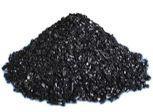Prism Pole,Professional Survey Prism Pole,Professional Leica Prism Pole,All Measurement Prism Pole Changzhou Precision Surveying & Mapping Instrument Co.,Ltd , https://www.surveyingfactory.com Recent industry data reveals that the average thermal coal price in the Bohai Rim 5500 kcal market closed at RMB 638 per ton for the week ending December 11, 2012. This is a slight increase compared to the previous report, which covered the period from November 28 to December 4. However, during this time, the price dropped by 2 yuan per ton over the course of the week.
Analysts from the business community, including Xinyu Xin, suggest that the Bohai Sea coal market remains sluggish. With weak demand, many coal producers are resorting to lowering prices in an effort to retain customers. At the same time, the influx of cheaper imported coal is intensifying competition, putting pressure on domestic coal prices. Market participants remain cautious and uncertain about future trends.
The recent decline in thermal coal prices follows a two-week period of relative stability. The primary cause behind the drop is weak demand, despite improvements in the domestic economy and increased consumption of electricity and other energy resources. However, the oversupply in the coal market continues to push prices downward, making it difficult to reverse the current low-demand environment in the short term.
According to industry monitoring reports, as of November 30, key power plants across the country held 88.8 million tons of coal, enough to last for 24 days—still at an extremely high level. Meanwhile, coal stocks at the four major ports around the Bohai Sea have been rising for seven consecutive weeks. By December 10, the total stockpile had reached 17.189 million tons, up 819,000 tons from the previous week—an increase of 5%.
Although international coal prices have seen a temporary rise, this may provide some support to domestic coal prices. However, imported coal is still generally cheaper than domestically traded coal. Moreover, with the end-of-year peak in coal imports approaching, this trend is further dampening the enthusiasm of domestic buyers, who are more inclined to opt for lower-cost foreign alternatives.
Recent industry data reveals that the average thermal coal price in the Bohai Rim 5500 kcal market closed at RMB 638 per ton for the week ending December 11, 2012. This is a slight increase compared to the previous report, which covered the period from November 28 to December 4. However, during this time, the price dropped by 2 yuan per ton over the course of the week.
Analysts from the business community, including Xinyu Xin, suggest that the Bohai Sea coal market remains sluggish. With weak demand, many coal producers are resorting to lowering prices in an effort to retain customers. At the same time, the influx of cheaper imported coal is intensifying competition, putting pressure on domestic coal prices. Market participants remain cautious and uncertain about future trends.
The recent decline in thermal coal prices follows a two-week period of relative stability. The primary cause behind the drop is weak demand, despite improvements in the domestic economy and increased consumption of electricity and other energy resources. However, the oversupply in the coal market continues to push prices downward, making it difficult to reverse the current low-demand environment in the short term.
According to industry monitoring reports, as of November 30, key power plants across the country held 88.8 million tons of coal, enough to last for 24 days—still at an extremely high level. Meanwhile, coal stocks at the four major ports around the Bohai Sea have been rising for seven consecutive weeks. By December 10, the total stockpile had reached 17.189 million tons, up 819,000 tons from the previous week—an increase of 5%.
Although international coal prices have seen a temporary rise, this may provide some support to domestic coal prices. However, imported coal is still generally cheaper than domestically traded coal. Moreover, with the end-of-year peak in coal imports approaching, this trend is further dampening the enthusiasm of domestic buyers, who are more inclined to opt for lower-cost foreign alternatives.